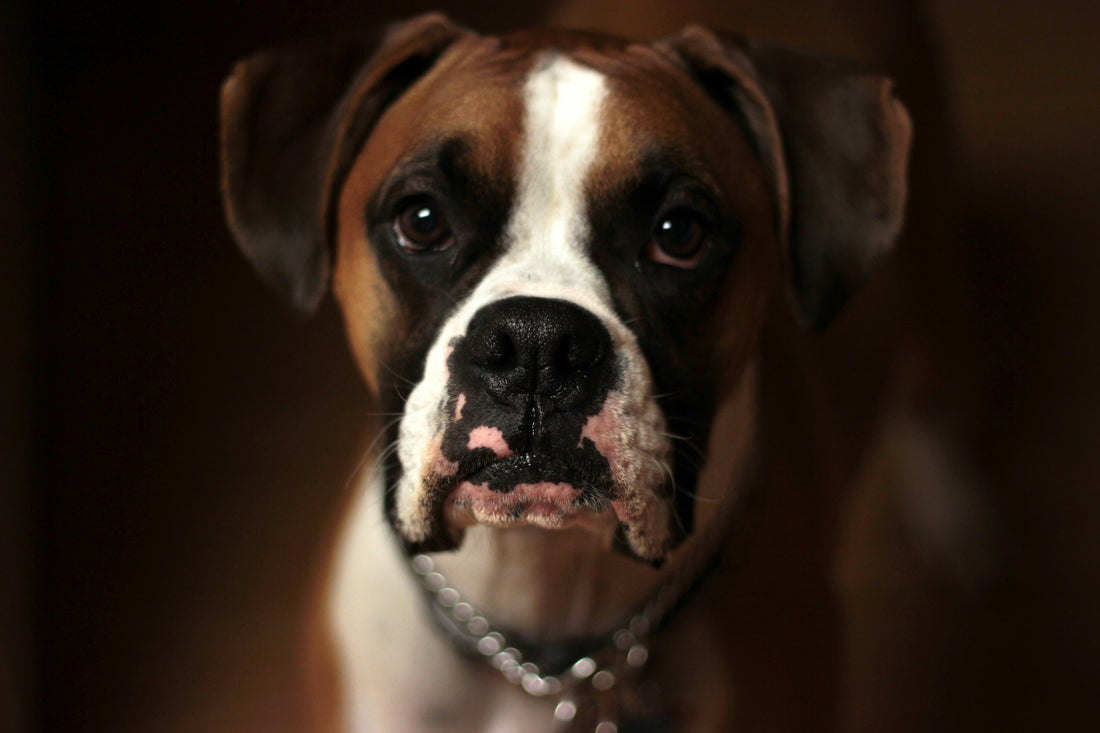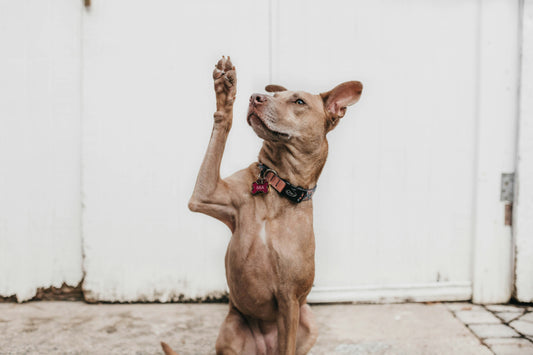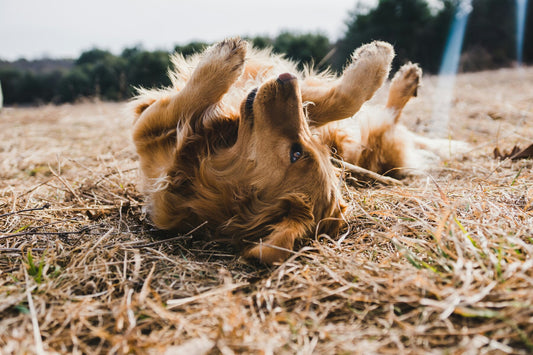Dog Throwing Up Undigested Food: Causes, Treatment and Prevention

Let me guess, your dog threw up food hours after eating, and you’re in panic mode trying to figure out what’s wrong. It is indeed a situation that can raise concerns about your dog’s overall health and well-being.
Thankfully, in this article, we’ll tell you everything you need to know about this problem. We’ll look into the reasons behind why dogs vomit undigested food, alongside practical steps you can take to address and prevent this issue. From immediate care tips to long-term dietary adjustments, we’re here to help you ensure your furry friend stays healthy and happy.
Understanding Why Dogs Vomit Undigested Food
Difference Between Vomiting and Regurgitating
It’s important to distinguish between vomiting and regurgitating, as they are caused by different issues within the dog’s body. Vomiting involves active abdominal contractions and is a sign that the dog’s digestive system has rejected the food. In contrast, regurgitation is a passive process where undigested food is expelled from the esophagus, often indicating problems like esophageal disorders.
Common Causes
Dogs may vomit undigested food for various reasons, including eating too quickly, experiencing stress, undergoing dietary changes, or suffering from health issues like gastrointestinal disorders. Eating too fast can prevent food from being properly digested, leading to vomiting of partially digested food. Stress and dietary changes can disrupt the dog’s digestive tract, while food allergies and intolerances can cause digestive upset, prompting your dog to vomit.
When to Be Concerned
While occasional vomiting may not be a cause for alarm, certain signs should prompt you to seek veterinary attention. Be concerned if your dog vomits repeatedly, shows signs of distress, or exhibits accompanying symptoms such as lethargy or diarrhea. These could indicate more serious underlying conditions that require professional diagnosis and treatment.
Immediate Steps to Take After Your Dog Vomits
When you see your dog vomiting after a meal, knowing the immediate steps to take can significantly help in managing your dog’s discomfort and preventing further issues. Here’s what you should do right away:
Assess the Situation
First and foremost, stay calm and assess the situation carefully. Observe the circumstances leading up to the vomiting—was your dog eating too quickly, or did they get into something they shouldn’t have? Look for any signs that might indicate the cause, such as pieces of a new toy or unfamiliar food in the vomit. Understanding the context can help you determine whether the vomiting is likely a one-time incident or if there might be a deeper issue at play.
Remove Food and Water Temporarily
After your dog has vomited, it’s wise to temporarily remove access to food and water. This gives your dog’s stomach and digestive system a chance to rest and recover. However, this should only be for a short period—typically around 2 to 4 hours for water and 6 to 8 hours for food. After this brief fasting period, reintroduce water slowly, offering small amounts to see if your dog can keep it down without further vomiting.
Monitor Your Dog
Closely monitoring your dog after they’ve vomited is crucial. Pay attention to their behavior, energy levels, and any additional symptoms that may arise, such as further vomiting, diarrhea, lethargy, or signs of distress. Keeping a close eye on your dog will help you gauge the severity of the situation and determine if and when veterinary intervention is necessary. Remember, while vomiting can sometimes be normal for dogs, repeated episodes or accompanying symptoms warrant a call to your vet.
Home Remedies to Soothe Your Dog’s Stomach
After addressing the immediate aftermath of your dog vomiting undigested food, there are several home remedies you can employ to help soothe your dog’s stomach and prevent future episodes. These remedies are gentle, easy to implement, and can make a significant difference in your dog’s comfort and recovery.
Bland Diet
Once your dog is ready to eat again, introducing a bland diet is a crucial next step. A bland diet consists of easily digestible foods that are gentle on the stomach, such as boiled chicken (without skin or bones) and white rice.
These foods provide the necessary nutrients without overburdening the digestive system. Start with small, frequent meals to gradually reintroduce food, and monitor your dog’s response. If they handle the bland diet well without further vomiting, you can slowly start mixing in their regular dog food over several days until they’re back to their normal diet.
Hydration
Hydration is key to recovery, especially if your dog has vomited multiple times. After the initial withholding period, ensure your dog has access to fresh, clean water at all times.
If your dog is hesitant to drink water, you can encourage hydration by offering ice cubes or adding a little chicken broth (ensure it’s low in sodium and onion-free) to the water to make it more appealing. Watch for signs of dehydration, such as dry gums or decreased skin elasticity, and consult your vet if you’re concerned about your dog’s hydration levels.
Long-Term Solutions and Prevention
To prevent future incidents, consider implementing these long-term solutions and preventive measures. These strategies focus on addressing the root causes of digestive upset and ensuring your dog maintains optimal digestive health.
Feeding Practices
Adjusting your dog’s feeding practices can have a significant impact on their digestive health. For dogs that eat too quickly, consider using slow feeder bowls to encourage slower eating, which can help prevent vomiting.
Smaller, more frequent meals can also ease the burden on your dog’s digestive system, allowing for better digestion and absorption of nutrients. Additionally, ensure that the dog food you’re using is high-quality and suited to your dog’s specific dietary needs, as food intolerances can contribute to digestive upset.
Probiotics
Incorporating probiotics into your dog’s diet can support a healthy balance of gut bacteria, which is crucial for optimal digestion and absorption of nutrients. Probiotics can help maintain a healthy digestive tract, reduce the risk of digestive upset, and improve overall gut health.
You can find probiotics specifically formulated for dogs in various forms, including supplements like Bando’s Digestive Care Soft Chews, probiotic-rich foods, or dog foods that include probiotics in their ingredients.
Stress Reduction
Stress can have a profound effect on your dog’s digestive health, potentially leading to vomiting and other digestive issues. Creating a calm and stable environment for your dog can help minimize stress-related digestive upset.
Regular exercise, mental stimulation, and establishing a consistent routine can all contribute to reducing your dog’s stress levels. Additionally, consider using calming aids during particularly stressful situations, such as thunderstorms or fireworks.
Regular Veterinary Check-ups
Regular check-ups with your veterinarian are essential for maintaining your dog’s overall health and catching any potential issues early. During these visits, your vet can assess your dog’s digestive health, provide recommendations for dietary adjustments or supplements, and address any concerns you may have about your dog’s eating habits or digestive system. Preventive veterinary care is key to identifying and addressing the underlying causes of vomiting undigested food before they become more serious.
Book a Consultation Call with our Team for Advice
If your dog frequently vomits undigested food, and you’re seeking personalized guidance, our team is here to assist. Booking a consultation call with our team of experts and we will provide you with advice tailored to your dog’s specific health needs and dietary requirements. We understand that each dog is unique, and finding the right solutions for digestive issues can sometimes require a customized approach.
During the consultation, we’ll discuss your dog’s current diet, eating habits, lifestyle, and any previous health concerns to identify potential factors contributing to the vomiting. We’ll also explore various dietary adjustments, feeding practices, and natural remedies that could benefit your dog. Our goal is to help you create a comprehensive plan that not only addresses the immediate issue of vomiting undigested food but also promotes long-term digestive health and well-being for your furry friend.






